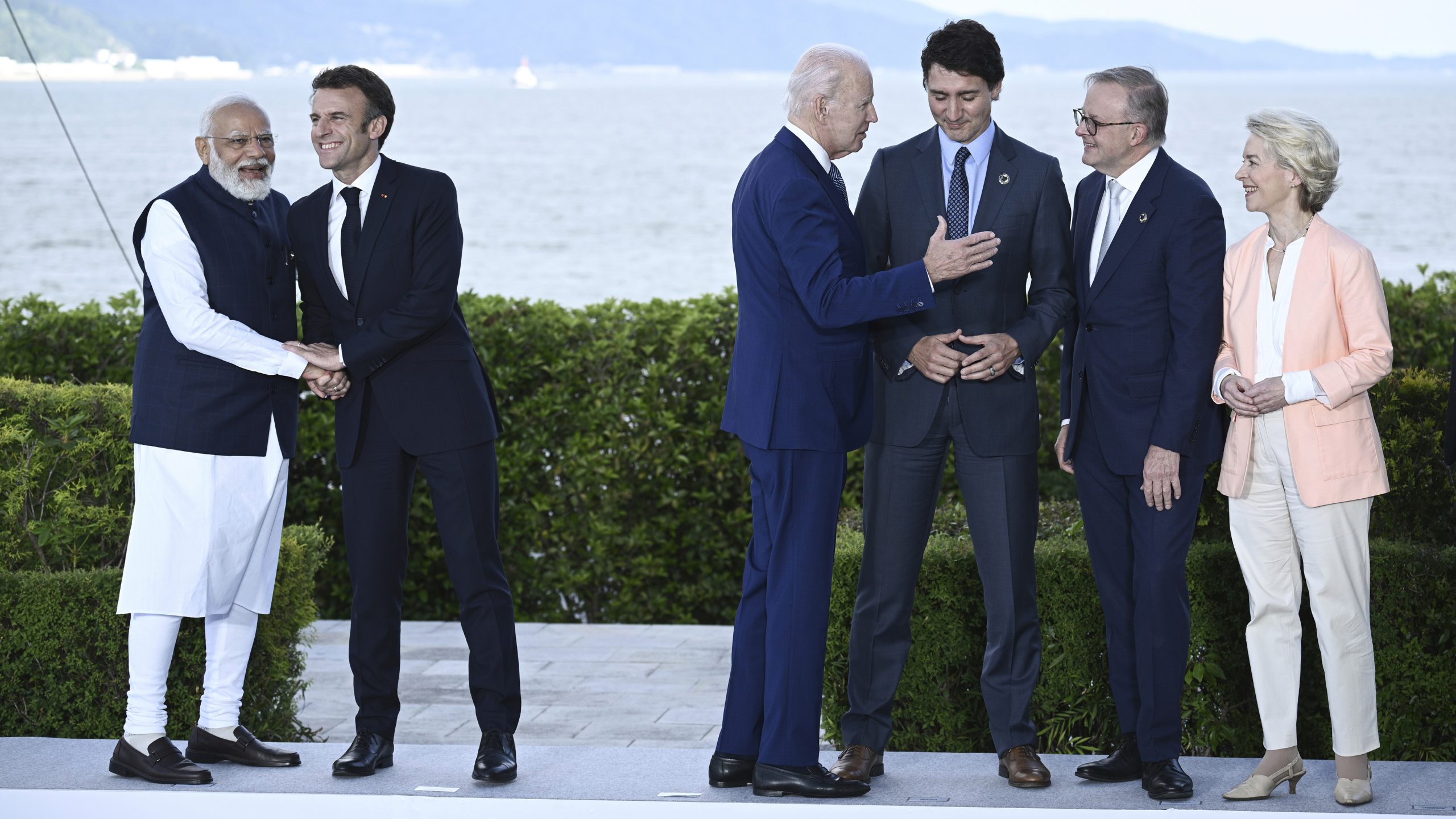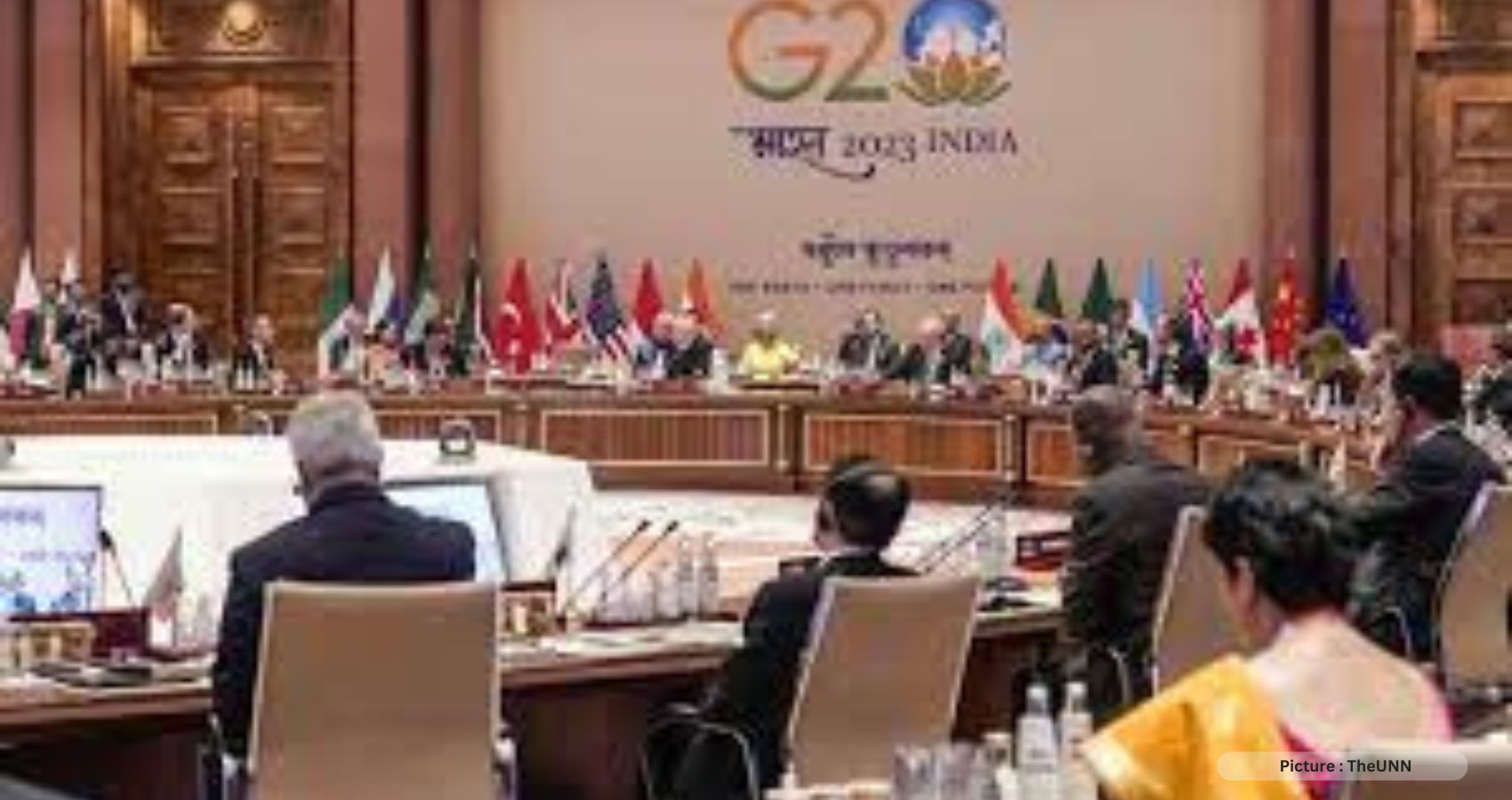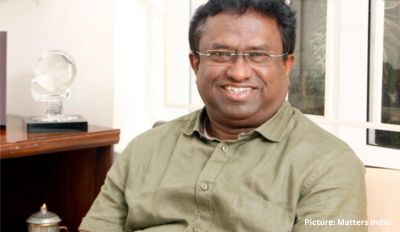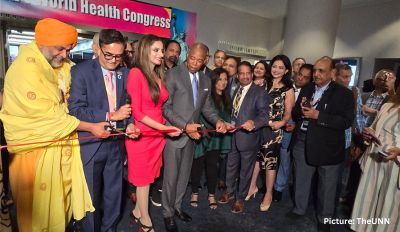As the Group of 20 summit commenced, India’s Foreign Minister, S. Jaishankar, emphasized India’s role in promoting geopolitical harmony amidst the backdrop of intensifying great power rivalry. During the conclusion of contentious negotiations over the joint leaders’ declaration in New Delhi, Jaishankar acknowledged the challenge of leading a “very broad, very diverse” group of member states and stated, “There’s a spectrum of views and interests out there that we have tried to harmonize to produce the declaration.”
The focal point of this “spectrum of views” revolved primarily around Russia’s invasion of Ukraine, with G20 officials striving to find common ground. Since the commencement of the conflict in early 2022, India had consistently advocated for a peaceful resolution while refraining from overtly condemning Russia. India shares a long history of partnership with Russia and depends on the country for weapons and affordable oil shipments.
While the G20 traditionally serves as a forum for economic and developmental discussions, recent years have witnessed the intrusion of geopolitical concerns into its agenda. As the summit approached, analysts anticipated difficulties in reaching a consensus on the statement’s wording, especially with the U.S. advocating for a clear denunciation of Russia’s invasion.
Ultimately, the declaration produced was largely influenced by India’s discreet diplomatic efforts, reflecting the host country’s balanced foreign policy approach. The declaration refrains from direct condemnation of Russia and instead includes a general summary of the United Nations’ principles, emphasizing the avoidance of force for territorial acquisition by states. It also acknowledges the human suffering and adverse impacts of the conflict in Ukraine. This stance marked a contrast from the previous year’s declaration, which expressed strong condemnation of Russia’s aggression and demanded its unconditional withdrawal from Ukrainian territory.
Another significant outcome of the summit was the African Union’s admission as a full member of the G20. This accomplishment was part of India’s concerted efforts to engage with developing countries in what it terms a “multialignment” strategy. In a world where the U.S. and China vie for global influence, India is seizing the opportunity to emerge as an alternative, focusing on the Global South and representing it in a polarized international order. This position echoes India’s stance during much of the Cold War when Prime Minister Jawaharlal Nehru helped establish the nonaligned movement, representing the “Third World” as a neutral force amid competing ideological blocs.
While some Asian countries like Japan and South Korea are strengthening their ties with the U.S. in response to China’s rise, India is pursuing a policy of hedging its bets. India’s role in mediating disagreements among G20 members regarding Russia’s Ukraine war could be seen as a pivotal moment in its ascent as a dealmaker and champion of a more flexible international order.
Harsh V. Pant, a professor of international relations at King’s College London and vice president of studies and foreign policy at the Observer Research Foundation, noted, “In some ways, the Global South approach that India has favored has [caught on], and that’s one metric of success. As major powers contest and compete, India will be more favorably positioned as a country that has channels of communication open with different stakeholders.”
Supporters of India’s “multialignment” foreign policy highlight its economic benefits. India has procured discounted Russian crude oil following Western sanctions on Russian oil exports. This affordable oil has significantly contributed to India’s economic growth, with K.C. Ramesh, executive director of Oil and Natural Gas Corporation, India’s largest oil company, affirming its positive impact.
Despite criticism from Western nations regarding its oil imports from Russia, India’s relations with the U.S. and the West have remained intact. In fact, India has witnessed a surge in exports to the U.S. over the past two years, with the U.S. surpassing China to become India’s largest trading partner in 2022, according to data from the Indian Commerce Ministry. Harsh V. Pant observed, “Despite Ukraine, India’s ties with the U.S. and West have not really suffered. You see greater acceptance of the logic of India’s position today.”
Vincent Magwenya, a spokesperson for South African President Cyril Ramaphosa, commended India for setting an attractive example for developing countries. He remarked, “We have expressly stated that we are not aligned to any particular global power, so what India has done is very much in line with our own foreign policy.”
Despite championing the cause of the Global South, India remains part of the U.S.-led Quadrilateral Security Dialogue (Quad), which includes Australia and Japan. Additionally, India is a member of the China- and Russia-led Shanghai Cooperation Organization, emphasizing its commitment to engaging with partners globally based on national interests. In an interview with Nikkei Asia before his participation as a special guest at the Group of Seven summit in Hiroshima, Prime Minister Narendra Modi stated, “As a member of the Global South, our interest in any plurilateral setting is to serve as a bridge between diverse voices and contribute to a constructive and positive agenda.”
The compromise regarding the language concerning Russia’s Ukraine invasion aligns with India’s broader diplomatic pattern, prioritizing tangible benefits such as trade and infrastructure that directly enhance domestic prosperity over ideological commitments and shared values in international relations. Praveen Donthi, senior analyst for India at the International Crisis Group, noted the divergence between the so-called rules-based international order and India’s pragmatic approach. He emphasized that India positions itself as a narrative shaper, a voice of the Global South, and an independent force pursuing multialignment.
Alongside the leaders’ statement on Russia’s Ukraine invasion, Prime Minister Modi worked on several deals during the G20 summit. This included a railway and ports project aimed at connecting the Middle East and South Asia, offering an alternative to China’s Belt and Road initiative. The project involves various partners, including the European Union, the U.S., and Saudi Arabia, demonstrating India’s proactive approach to regional connectivity and economic cooperation.
The Challenges of India’s Diplomatic Role
In the aftermath of a recent leaders’ declaration, Indian officials have found themselves fielding questions regarding a notable shift in language compared to the previous year’s G20 summit in Bali, Indonesia. While last year’s statement explicitly mentioned Russia in the context of the ongoing war and its impact on global stability, the current declaration, issued from New Delhi, takes a different approach. When asked about this divergence, India’s External Affairs Minister, Jaishankar, offered a succinct response: “I can only say Bali was Bali and New Delhi is New Delhi. Bali was a year ago, the situation was different. Many things have happened since then.”
This shift in rhetoric reflects India’s evolving role on the global stage, as it joins other non-Western countries in presenting an alternative vision of international relations. According to Sarang Shidore, director of the Global South Program at the Quincy Institute for Responsible Statecraft, this new vision seeks to forge “alternative, more equitable pathways to development that plug existing gaps in the U.S.-led order.” It’s a vision that resonates with many nations in the Global South, offering an alternative perspective on global governance.
However, not all experts in international relations are convinced that India’s newfound prominence will be sustainable. The ongoing war in Ukraine and the intensifying superpower rivalry between the United States and China have placed India in a position where it is courted from all sides. Yet, the durability of India’s current status remains uncertain unless it can establish relationships founded on shared values and principles rather than short-term expediency.
Sumit Ganguly, an expert on Indian foreign policy at Indiana University, points out that while Jaishankar and Prime Minister Modi are skillfully leveraging their relationships with global powers, the lack of durable ties based on values and shared beliefs may prove detrimental in the long run. In essence, building genuine friendships, rather than transactional alliances, should be India’s focus.
India’s need for true allies becomes particularly evident in light of escalating tensions with China, centered around the Himalayan border. The violent clashes in 2020 resulted in casualties on both sides and underscored the seriousness of the border dispute. In the face of an increasingly assertive China, India’s strategy of deliberate nonalignment stands in stark contrast to the recent foreign policy approaches of other Asian powers, such as Japan and South Korea.

Japan and South Korea, despite historical tensions stemming from Japan’s occupation of the Korean Peninsula from 1910 to 1945, have taken steps to deepen their security ties with each other and with the United States. They emphasize the importance of a “rules-based international order,” a stark contrast to India’s nonaligned stance.
South Korean President Yoon Suk Yeol, known for his strict adherence to rules and principles, cites common values of democracy and global trade as the basis for deeper cooperation between Japan and South Korea. The two nations also face shared threats from China and North Korea, which continues to advance its weapons programs. In an unexpected turn, Yoon took part in a summit with Japanese Prime Minister Fumio Kishida and U.S. President Joe Biden in which they agreed to share real-time information on North Korean missiles. Such cooperation would have been unthinkable a few years ago.
The emphasis on alliances among democracies is closely tied to growing concerns about China’s intentions and actions. As Park Hwee-rak, a professor of political science at Kookmin University in Seoul, points out, China has failed to convince South Korea and other neighbors of its commitment to democracy and regional leadership. Consequently, the U.S. appears to be the only reliable partner for democracies like South Korea, which cannot be replaced by China.
Turning our focus back to India, the G20 summit held significant importance for Prime Minister Modi. It allowed him to project an image of a strong and influential India just ahead of general elections. Modi’s investment in the G20 summit was, in part, aimed at presenting an India that diverges from the daily struggles experienced by many of its citizens. Despite longstanding expectations of India becoming Asia’s economic powerhouse, some analysts argue that Indian policymakers have failed to foster a robust middle class, and the country still lags behind in key measures of well-being, including access to food and medical care.
Critics of Modi’s leadership argue that his control over the country is characterized less by harmony and more by division and fear. In the weeks leading up to the G20 Summit, India was marred by incidents such as a mob setting fire to a mosque near New Delhi and violent clashes in Manipur. Opposition leader Rahul Gandhi has been among those criticizing Modi for failing to quell such violence, alleging that his politics of Hindu supremacism have fueled social unrest.
Despite Modi’s rhetoric about spearheading an alternative diplomatic approach and bridging the gap between the Global South and industrialized nations, his primary focus appears to be harnessing foreign policy for domestic political gains. As noted by the International Crisis Group’s Donthi, the government excels at offering intangible benefits such as boosting India’s global prestige while constantly strategizing to secure electoral victories.
India’s evolving role on the global stage, as seen through its participation in the G20 summit, signifies a departure from previous diplomatic approaches. While India’s nonaligned stance and emphasis on alternative visions of international relations may hold appeal for some nations, the sustainability of its newfound prominence remains uncertain. Building lasting relationships based on shared values and principles, rather than mere expediency, will be key to India’s success in the complex world of international diplomacy.











